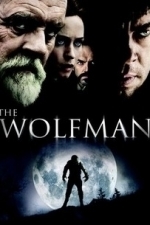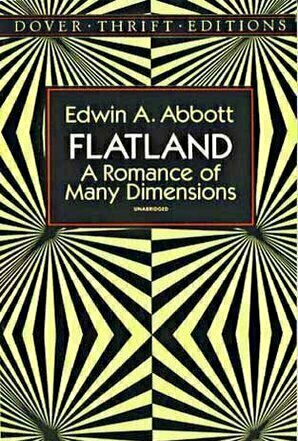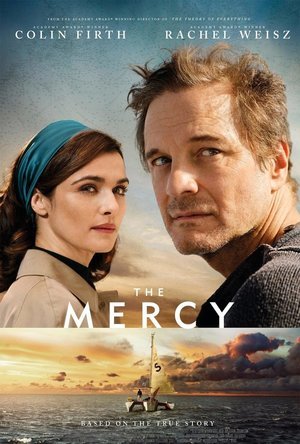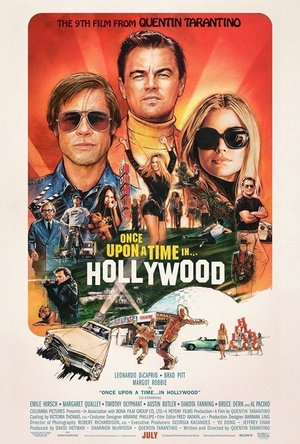
Tarot & Numerology
Lifestyle and Entertainment
App
The ultimate professional Tarot App! Customizable to all needs and tastes with multiple in-depth...

Strawberry Shortcake Ice Cream
Entertainment and Education
App
Create and serve tasty treats in your own ice cream truck on an island paradise! Budge Studios™...
Mayhawke (97 KP) rated Bats In The Belfry in Books
Feb 26, 2018 (Updated Feb 27, 2018)
Fifty-one re-issues in and I’m still stunned at the number of authors who had stellar careers as crime writers, were fully inducted members of the Detection Club, and had publication lists to rival Christie’s but who, within a few years of their deaths, had just vanished from the pantheon classic crime novelists.
Such a writer was E.C.R.Lorac, author of Bats In The Belfry. In his introduction Martin Edwards describes the pseudonymous Lorac (real name Edith Caroline Rivett) as enjoying a “low-key career spanning more than a quarter of a century.” It also produced a catalogue of over seventy novels, yet, cosy crime fan that I am I had never heard of her until her book turned up on my work intranet.
Bats, British Library’s inaugural Crime Classic for 2018, is also the first of Lorac’s novels to be given the British Library treatment. It couldn’t have happened to a better book! One of the dangers of republishing books that have disappeared in the mists of time, at least if you are republishing them for the mass market, is that some of them will prove to have been ‘lost’ with good cause. Not that the writing need be poor or the plotting weak, but there are social aspects that can be critical to the development or fundamental premise of the story that change over the course of half a century. When that happens there is a danger that the reader will at best be disgruntled with a puzzle they were unlikely to be able to solve because they didn’t understand the clues they were being given, or, at worst, that the whole premise will seem beyond ludicrous to modern readers. Of the twenty or so BLCC’s I have read only one has fallen into the latter category, and whilst there have been one or two which were a bit plodding thanks to such issues they have largely been a pleasure to read, and I have been able to joyfully pit my wits against the authors’ intrinsic challenge to solve the mystery before the denouement.
Bats in the Belfry most definitely falls into this class of Crime Classic, so much so that it’s a surprise to find from Edwards that it was a bit of a non-starter when it was first published in 1937.
A failing writer, his actress wife, his ward and a selection of friends are collected one evening following the funeral of the writer’s cousin. Shortly thereafter the writer himself has vanished, his suitcase and passport left in a darkly sinister studio known variously as The Belfry, and The Morgue. The story is as dark and twisty as any you could hope for from a member of the Detection Club, and it plays nicely on themes of the time. Broken marriages, financially emasculated men, and the requisite ‘strange foreign man’ all appear, and even aarchaeology gets a look in. As the main characters sit and incautiously discuss ways to bump off someone and hide the body there is brief verbal tussle over the usefulness – and even existence of – dene holes, ancient subterranean storage areas that provided writers of the time with endless possibilities, most notably in Sayers’ The Nine Tailors. Lorac’s plotting is flawless and deceptively simplistic, and she leads you back and forth from suspect to suspect. She is brutally unsympathetic to her characters, and her writing bundles you along until you finally reach the conclusion, to discover how good you are at detecting. Or not.
Gareth von Kallenbach (980 KP) rated The Wolfman (2010) in Movies
Aug 8, 2019
Over the years there have been countless updates to the tale which ranged from Michael Landon in “I Was a Teenage Werewolf, to the more contemporary “An American Werewolf in London” and “Dog Soldiers”.
With remakes being all the rage in Hollywood, Universal has returned to the original source material to offer an updated version of the original classic.
Set in England near the start of the twentieth century, the film stars Benicio Del Toro as an actor named Lawrence who is summoned home when his brother goes missing. Upon returning to the lavish familial estate, he is greeted by his estranged father, (Sir Anthony Hopkins), who informs him that his brother mutilated body was discovered earlier.
Dismayed by the condition of his brother’s remains, Lawrence decides to stay and get to the bottom of the mystery. When a clue provided by his brother’s fiancé leads him to a Gypsy encampment, Lawrence learns of a curse, but before he can obtain the information he desires, the camp is attacked by a mysterious creature that leaves a horrific path of carnage in its wake and leaves Lawrence badly wounded from a bite.
Lawrence makes an amazing recovery from his wounds and in doing so raises the suspicions of the locals who now see Lawrence as cursed and a threat to their society.
Lawrence has also raised the suspicions of Scotland Yard Inspector, (Hugo Weaving) who is convinced that Lawrence may be a key player in the local horror, as he was confined to an asylum in his childhood following the death of his mother.
At first Lawrence is outraged at the accusations, but when he transforms into a deadly creature and embarks on a deadly killing spree during a full moon, he soon learns a dangerous secret that places not only his life in danger, but endangers all those around him.
In a desperate race against time, Lawrence attempts to get to the root of his troubles and set things right before the next full moon, when his animal side will take over once again.
The film is a stylish update of the original and the cast is strong. Sadly they are given little to do with the by the numbers plot, and spend much of the time looking like they are simply going through the motions which makes it difficult for the audience to develop a deep sympathy or attachment to the characters.
Oscar winner Rick Baker has done some amazing makeup work and the effects of the film are solid. It was reported that the film was delayed so Universal could punch the film up by adding some new fx and sequences.
The final result is a mixed bag as while the film is a nice update on the original, audiences have seen more so many variations of the story over the years it is hard to be surprised by anything in the picture. Despite the best efforts of the creative talent, there is little tension or drama in the film and by the time the finale plays out, many may think they have seen it all before.
Universal has released the 1941 original Lon Cheney version of the film on DVD and for those who like film history; they may gain a new insight into the film by watching the original version prior.
In the end, “The Wolfman” works as a matinee or a DVD rental, but I would not suggest it as a full priced theatrical experience for anyone other than those looking for a piece of nostalgia.
Phil Leader (619 KP) rated Flatland (Enhanced Illustrated Edition) in Books
Nov 13, 2019
The book (although really a novella rather than a full novel at only 88 pages) works on two levels; firstly the story revolves around A Square, an inhabitant of the two dimensional space that is Flatland. Most of the book describes the rigid social hierarchy of the regular polygons that make up the people - the more sides a person has the higher their social standing. Irregular shapes are despised and usually executed. The second half involves investigation into the nature of dimensions when A Square first of all dreams of a one dimensional land, then is shown three dimensions and zero dimensions by a spherical person from the three dimensional land.
The first half is a satire on the rigid class system of Victorian society - it is particularly disparaging of women, who being lines rather than shapes are very much second class citizens, even having their own doors into and out of houses. This half shows the book's age, it was written in a different time and looking at it from more than 100 years later a lot of the discussion is overlong and unengaging. This part has not aged at all well.
The book only comes into its own when A Square has a dream about a land of one dimension, populated by lines of varying length, the longest line being the King of Lineland. The two dimensional dreamer attempts to persuade the King that is he could step sideways he would be able to see that his land of a single line was limited. Of course the King can conceive of no such direction as 'sideways' and rejects the suggestion as ridiculous.
A sphere from the 3 dimensional land of Space then visits Flatland, appearing as a circle of varying size as he passes through the two dimensional space. He tries to persuade Square that if he could move 'up' or 'down' he would be able to move beyond the rigid plane of his existence. Obviously the square cannot understand a direction which doesn't fall into two dimensions, until the sphere pulls him up and then he can look down to see Flatland spread out below him. He has an epiphany and is determined to spread the word on three dimensional space. The sphere also visits a zero dimensional land. However when the square suggests that if the sphere could somehow move in a new direction he might be able to enter four dimensional space the sphere is very quick to say how ridiculous such a notion is.
In this way the ideas behind dimensions are communicated quite effectively, including being able to deduce the properties of a four dimensional regular shape by extrapolating the properties of lines, squares and cubes. It is then clear how properties of higher dimensions can be calculated without our poor three dimensional minds actually being able to perceive of it.
Flatland is regarded as one of the very first science fiction novels. So is Gulliver's Travels but that has very little science and to my mind is more of a fantasy book. Despite Flatland having very little in the way of story and plot (although there are twists in the story) and the first half isn't really story at all but social commentary, it definitely describes fantastic worlds and imagines what the results would be of living in such places. This seems to me to be the very concept behind science fiction.
In conclusion, I would not recommend this to everyone as I think its appeal is quite limited. But for anyone of a mathematical bent who likes science fiction, it's always good to see where it all started.

Discovr - discover music
Music and Entertainment
App
Explore the world of music with Discovr * No. 1 music app in 50+ countries (US, UK, AU and more) *...

Pinball HD: Classic Arcade, Zen + Space Games
Games and Sports
App
This unique table features pinball bumpers and targets, plus a color monitor where you can take on a...
Bob Mann (459 KP) rated The Mercy (2018) in Movies
Sep 29, 2021
Lending him the money, under onerous terms, are local businessman Mr Best (Ken Stott, “The Hobbit“) and local newspaper editor Rodney Hallworth (David Thewlis, “Wonder Woman“, “The Theory of Everything“). With the race deadline upon him, Crowhurst is pressed into sailing away from his beloved wife Clare (Rachel Weisz, “Denial“, “The Lobster“) and young family in a trimaran that is well below par.
But what happens next is so ludicrous that it makes a mockery of whoever wrote this ridiculous work of fiction. Ah… but wait a minute… it’s a true story!
It is in fact such an astonishing story that this is a film that is easy to spoil in a review, a fact that seems to have passed many newspaper reviewers by (Arrrggghhh!!). So I will leave much comment to a “spoiler section” that follows the trailer (which is also best avoided). This is honestly a film worth seeing cold. What can I say that is spoiler-free then?
Firth and Weisz make a well-matched couple, and the rest of the cast is peppered with well-known faces from British film and (particularly) TV: Andrew Buchan and Jonathan Bailey (from “Broadchurch”); Mark Gatiss (“Sherlock”, “Out Kind of Traitor“); Adrian Schiller (“Victoria”; “Beauty and the Beast“).
The first part of the film is well executed and excellent value for older viewers. 60’s Devon is warm, bucolic and nostalgic. In fact, the film beautifully creates the late 60’s of my childhood, from the boxy hardwood furniture of the Crowhurst’s house to the Meccano set opened at Christmas time.
Once afloat though, the film is less successful at getting its sea-legs. The story is riveting, but quite a number of the scenes raise more questions than they answer. As stress takes hold it is perhaps not surprising that there are a few fantastical flights of movie fancy. But some specific elements in Scott Burns’ script don’t quite gel: a brass clock overboard is a case in point. What? Why?
And it seems to be light on the fallout from the race: there is a weighty scene in the trailer between Best and Hallworth that (unless I dozed off!) I don’t think appeared in the final cut, and I think was needed.
All in all, I was left feeling mildly dissatisfied: a potentially good film by “Theory of Everything” director James Marsh that rather goes off the rails in the final stretch.
This was a time where morality and honour were often rigidly adhered to – British “stiff upper lip” and all that – and seemed to carry a lot more weight than they do today. So some of the decisions in the film might mystify younger viewers. But for the packed older audience in my showing (Cineworld: this needs to be put on in a bigger screen!) then it was a gripping, stressful, but far from flawless watch.
I’d also like to take this opportunity to pay my respects to the film’s composer Jóhann Jóhannsson, who shockingly died last week at the ridiculously young age of 48. His strange and atmospheric music for films including “The Theory of Everything“, “Sicario” and (particularly) “Arrival” set him on the path to be a film composing great of the future. Like James Horner, another awful and untimely loss to the film music industry.
Gareth von Kallenbach (980 KP) rated Once Upon a Time in Hollywood (2019) in Movies
Jul 25, 2019
Once Upon a Time in Hollywood takes place in 1969 near the end of the golden age of Hollywood. Rick Dalton (Leonardo DiCaprio) is an aging star of Westerns trying to desperately remain relevant in a world that considers those even in their 30’s as ancient, much like the black and white film common even to that day. His stuntman and best friend Cliff Booth (Brad Pitt) is happy to go along for the ride. More of an assistant and better known as the man who got away with killing his own wife, Cliff is content with his role in the world and isn’t looking for the next big break.
You can’t have a Hollywood story in 1969 without involving one of the most brutal murders of the time, that of Sharon Tate (Margot Robbie) and the now infamous Charles Manson and his “family”. A dark cloud that would leave a lasting mark on Hollywood itself. Their presence reminds us of the chilling reality to the evil that is lurking just outside the amazing set pieces and bright lights of the city itself.
Brad Pitt and Leonardo DiCaprio do a phenomenal job as one would expect. It’s always interesting to watch a movie where the actor is portraying another character in an entirely different movie and Leonardo delivers in spades. Brad Pitt brings his usual lovable charm to the otherwise tough persona as Cliff, the dog loving, Bruce Lee ass kicking sidekick. The chemistry between the two is undeniable, displaying both touching and comedic undertones throughout. It’s almost surreal to think that they are portraying characters that do represent themselves in the real world. It’s hard not to make the comparison of Brad and Leo to their onscreen characters, as aging stars wondering what the future holds for them.
Tarantino does a marvelous job of transporting his viewers back to 1969. Everything from episodes of old television shows, to advertisements on the street envelop the viewers in the tie-dyed/hippy reality of what the 60’s was. It’s hard not to be impressed with the cinematography that has been so lavishly recreated before us. The streets, the cars, even the film itself all take their cues from the time period. Car scenes are shot with laughably fake backdrops at times to remind us exactly the types of effects that went into filming back in the day. It’s a mix of old school and new school filming that takes you from one reality and places you in another. Tarantino does his best to make the audience more than spectators to what is developing on screen and instead as active participants.
Once Upon a Time in Hollywood is a fairytale of sorts, of what made Hollywood so special back in the 60’s. It lacks much of the brutal nature that has become second nature to Tarantino films, and those who are going to see it for its brutality will likely be very disappointed. It’s a film that is incredibly difficult to talk about without spoilers, because outside the general plot synopsis the viewer is left with more questions than answers. The film is long, coming in at two hours and forty minutes, and there are scenes that tend to drag on a little longer than necessary. Thankfully though, Tarantino has weaved a story of what was and what could have been, if Rick and Cliff both had existed…Once Upon a Time in Hollywood.
4 out of 5 stars

Ultimate Lion Simulator
Games and Education
App
Jump into a brand new adventure as a ferocious Lion! Brave a dangerous new world to claim your place...




